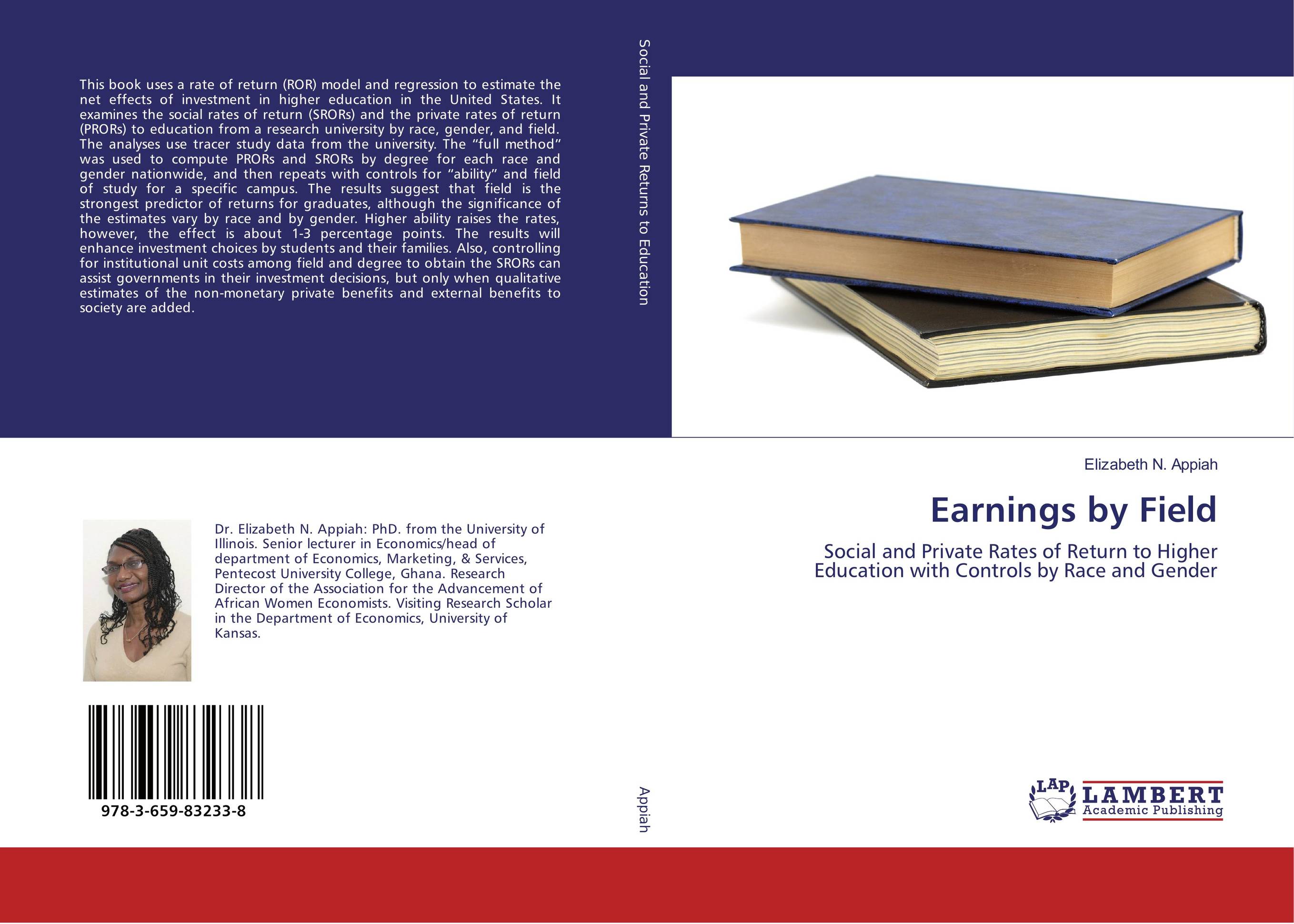| Поиск по каталогу |
|
(строгое соответствие)
|
- Профессиональная
- Научно-популярная
- Художественная
- Публицистика
- Детская
- Искусство
- Хобби, семья, дом
- Спорт
- Путеводители
- Блокноты, тетради, открытки
Earnings by Field. Social and Private Rates of Return to Higher Education with Controls by Race and Gender

В наличии
| Местонахождение: Алматы | Состояние экземпляра: новый |

Бумажная
версия
версия
Автор: Elizabeth N. Appiah
ISBN: 9783659832338
Год издания: 2017
Формат книги: 60×90/16 (145×215 мм)
Количество страниц: 200
Издательство: LAP LAMBERT Academic Publishing
Цена: 29149 тг
Положить в корзину
| Способы доставки в город Алматы * комплектация (срок до отгрузки) не более 2 рабочих дней |
| Самовывоз из города Алматы (пункты самовывоза партнёра CDEK) |
| Курьерская доставка CDEK из города Москва |
| Доставка Почтой России из города Москва |
Аннотация: This book uses a rate of return (ROR) model and regression to estimate the net effects of investment in higher education in the United States. It examines the social rates of return (SRORs) and the private rates of return (PRORs) to education from a research university by race, gender, and field. The analyses use tracer study data from the university. The “full method” was used to compute PRORs and SRORs by degree for each race and gender nationwide, and then repeats with controls for “ability” and field of study for a specific campus. The results suggest that field is the strongest predictor of returns for graduates, although the significance of the estimates vary by race and by gender. Higher ability raises the rates, however, the effect is about 1-3 percentage points. The results will enhance investment choices by students and their families. Also, controlling for institutional unit costs among field and degree to obtain the SRORs can assist governments in their investment decisions, but only when qualitative estimates of the non-monetary private benefits and external benefits to society are added.
Ключевые слова: Gender, higher education, race, social rate of return, private rate of return, non-monetary benefits, field of study



